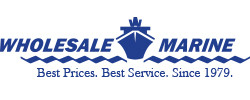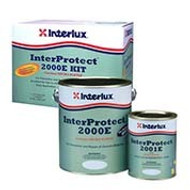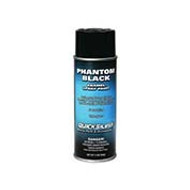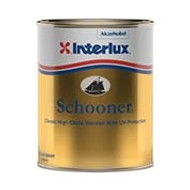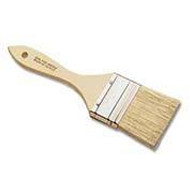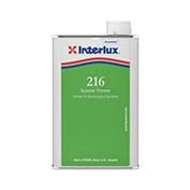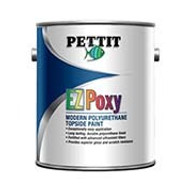Choosing the Right Boat Paint
Picking the right boat paint is a lot like choosing the right gear. You want something that fits your boat, your conditions, and the way you use it. If your boat lives in the water, antifouling marine paint is a must to keep barnacles and slime at bay. Trailering most of the time? You might be better off with a hard, glossy topside finish that looks sharp and cleans up easily.
Think about where you're boating—freshwater or saltwater—and match your marine-grade paint to those conditions. Look for UV protection if you're out in the sun all day, and choose coatings that are tough enough to handle dock rubs, fishing trips, and weekend adventures. With today's marine boat paint, you'll find plenty of options that not only protect but also make your boat look better than ever.
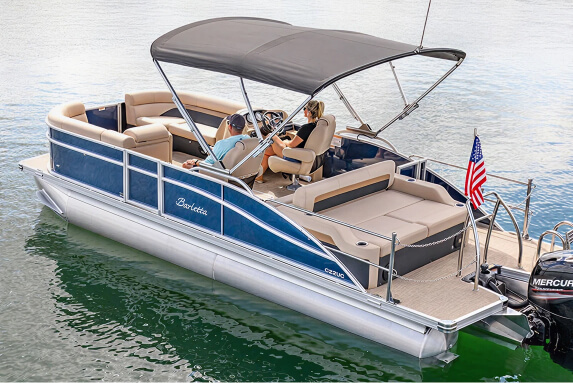
Protect Your Investment With the Right Marine Paint
A good coat of boat paint is like a good insurance policy; it works quietly in the background, keeping your boat safe from the elements so you can focus on the fun stuff. The right finish shields your hull from UV damage, corrosion, and moisture intrusion, all of which can shorten your boat's lifespan and cause expensive headaches down the line.
Marine-grade paint protects and performs. Antifouling coatings keep growth off your hull so you maintain speed and fuel efficiency, while topside and varnish options preserve that just-detailed shine. With high-quality marine boat paint, you'll spend less time scrubbing, sanding, and repairing, and more time out on the water making the most of your boating season.
Why Shop With Wholesale Marine
When it's time to paint your boat, you don't want to waste weekends running from store to store; you want the right boat paint in your hands, fast. That's where we come in. At Wholesale Marine, we carry top brands of marine paint so you can tackle everything from quick touch-ups to full hull jobs with confidence.
Our crew of boating pros is here to answer your questions, match you with the perfect marine boat paint, and make sure you've got the right supplies for the job. We back every order with our Lowest Price Guarantee, and your order ships fast. And when you join our Captain's Club, you earn rewards and enjoy exclusive discounts, so you can keep your boat looking sharp without blowing the budget.
Explore Our Boat Paint
We stock a wide variety of boat paint types to handle every surface, condition, and style. Whether you're restoring a classic or just freshening up for the season, you'll find the marine boat paint and supplies you need right here:
- Antifouling Boat Bottom Paint: Keep barnacles, algae, and slime from slowing you down.
- Barrier Coats: Seal and protect your hull from moisture intrusion and blistering.
- Engine Spray Paint: Touch up or completely refinish your outboard or inboard for a like-new look.
- Marine Primers: The foundation for a smooth, long-lasting topcoat.
- Marine Varnish: Bring out the natural beauty of wood while adding UV and moisture protection.
- Painting Supplies: Rollers, brushes, tape, and everything else you need for the job.
- Thinners & Solvents: For cleanup, prep, and perfect paint consistency.
- Topside Boat Paint: A durable, glossy finish for decks, cabin tops, and hull sides.
Find the Right Boat Paint for Every Situation
The perfect boat paint depends on where you boat, how you store your vessel, and the kind of finish you're after. If you're in saltwater, go for marine-grade paint that's tough against corrosion and UV damage. Freshwater boaters might focus more on antifouling performance and easy maintenance. Either way, the right marine boat paint can boost your boat's looks and performance in one stroke.
- Antifouling Paint: Essential for preventing growth on boats that stay in the water.
- Barrier Coats: Best for added hull protection and stopping blistering before it starts.
- Topside Paint: Ideal for visible areas, such as decks and cabin sides, where you want both durability and shine.
- Engine Paint: Protects and beautifies your motor, even under heat and vibration.
- Varnish: A must for wood accents, offering UV resistance and a rich finish.
- Primers: The secret to a smooth, long-lasting topcoat that looks pro.
Boat Paint To Protect Your Craft & Keep it Looking Sharp
Your boat deserves a finish that works as hard as you do. To prevent marine growth, protect against the sun, and give your boat a head-turning shine, we've got the boat paint to make it happen. Shop now, and get everything you need, from marine paint to brushes, rollers, and thinners—delivered fast so you can get back on the water.
FAQs: Boat Paint
Got another question for us? Here are some that we've received from other boaters interested in paint for their vessel. Please contact us if you'd like additional information.
What's the difference between marine paint and regular paint?
Marine paint is specially formulated to withstand constant exposure to water, UV rays, and harsh weather. Unlike regular paints, it offers superior adhesion, flexibility, and resistance to fading, peeling, and blistering.
How do I choose the right boat paint for my needs?
It depends on your boat's material, where you boat (salt or freshwater), and whether it stays in the water. Antifouling paint is essential for boats kept in the water, while topside and varnish options are perfect for above-water areas.
Do I need to use a primer before applying marine boat paint?
In most cases, yes, especially on bare fiberglass, metal, or wood. A marine primer helps your topcoat adhere better and last longer.
How often should I repaint my boat?
Bottom paint typically needs to be refreshed every 1–3 years, depending on usage and water conditions. Topside paint can last several years with proper care.
